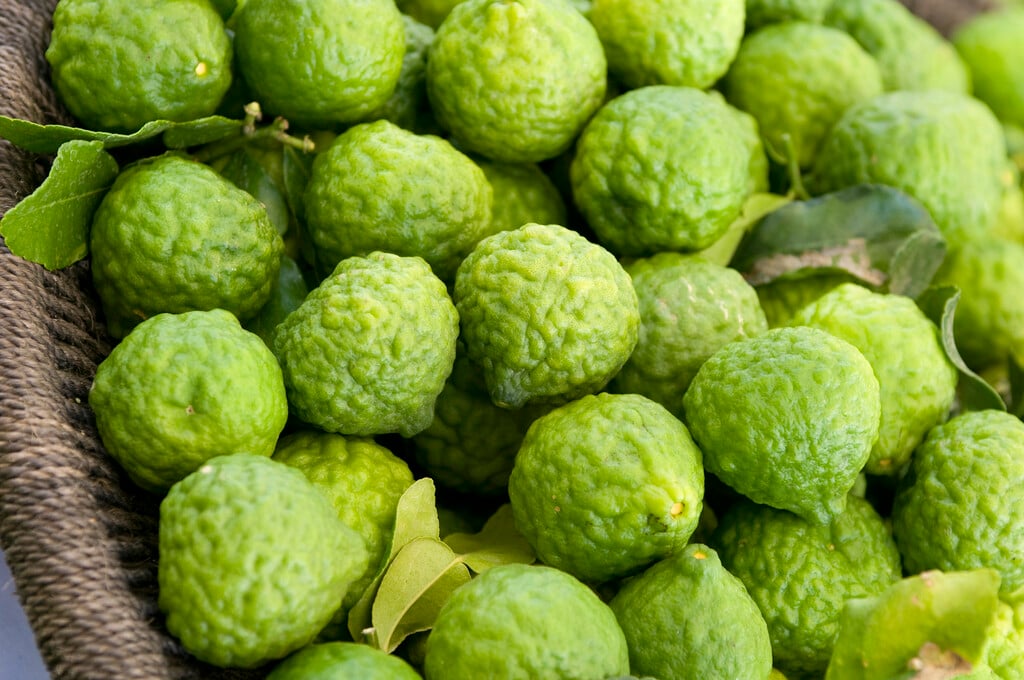Citrus hystrix
makrut lime
An evergreen shrub to 4m tall, with distinctive, glossy, dark green leaves in two parts. Fragrant white flowers to 2cm across are produced throughout the year; these are followed by bumpy-skinned limes. Both the leaves and fruit are widely used in South East Asian cuisine. Thai limes are best grown in a cool or temperate greenhouse or conservatory and moved outside during the summer months
Synonyms
Citrus latipes Hook. f. & Thomson ex Hook. f.Citrus papeda
Size
Ultimate height
2.5–4 metresTime to ultimate height
5–10 yearsUltimate spread
1–1.5 metresGrowing conditions
Moisture
Moist but well–drainedpH
Acid, NeutralColour & scent
| Stem | Flower | Foliage | Fruit | |
| Spring | White | Green | Green | |
|---|---|---|---|---|
| Summer | White | Green | Green | |
| Autumn | White | Green | Green | |
| Winter | White | Green | Green |
Position
- Full sun
Aspect
South–facing or West–facing
Exposure
Sheltered Hardiness
H3Botanical details
- Family
- Rutaceae
- Native to GB / Ireland
- No
- Foliage
- Evergreen
- Habit
- Bushy
- Potentially harmful
- Fruit harmful to skin with sunlight/skin allergen (lemon and lime-bearing Citrus only). Wear gloves and other protective equipment when handling
- Genus
Citrus are typically evergreen shrubs or trees, frequently spiny, with simple, leathery, aromatic leaves, usually with winged stalks, and often fragrant white or pink-tinged flowers, followed by large, juicy fruits
- Name status
Correct
- Plant range
- SE Asia
How to grow
Cultivation
Grow as a conservatory or greenhouse plant, in a container of peat-free, loam-based potting compost with added grit, in full light, with shade from hot sun. In growth during spring and summer, water freely, and mist daily. Apply fertilisers formulated for citrus, throughout the year, following the manufacturer’s instructions; water sparingly in winter. See citrus cultivation for further information
Propagation
Propagate by semi-ripe cuttings in summer, or layer in early spring. Sow seed at 16°C in spring
Suggested planting locations and garden types
- City and courtyard gardens
- Mediterranean climate plants
- Patio and container plants
- Bedding
- Conservatory and greenhouse
- Edible fruit
Pruning
See pruning group 1
Pests
May be susceptible to scale insects, mealybugs and glasshouse red spider mite
Diseases
Generally disease-free
Get involved
The RHS is the UK’s gardening charity, helping people and plants to grow - nurturing a healthier, happier world, one person and one plant at a time.
